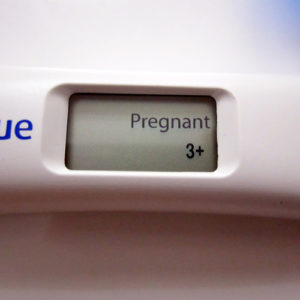Your most fertile moment is when you ovulate and this is the best time to try if you want a baby. During ovulation, a mature egg enters the fallopian tube and it is ready for fertilisation. You need to act quickly though as there are just 12 hours until the egg starts to degenerate if it has not been fertilised. It is possible to spot the signs that you are ovulating but you will need to pay close attention to how your body is changing to use this time wisely.
Here are some of the ways in which you can determine the best time to get pregnant:
Factors That Affect Fertility
Several factors can impact your fertility and chances of getting pregnant, even during your most fertile days. Age is a significant factor, as fertility declines with age, especially after 35. Maintaining a healthy weight is also important, as being overweight or underweight can disrupt hormone levels and ovulation. Stress, smoking, excessive alcohol consumption, and certain medications can also negatively impact fertility.
Calculating the Days on Which You Will Ovulate
One of the more common ways to work out your ovulation period is to calculate the days. You will need to work out when you are due your next period and then count between 12 and 16 days before that date. This is more effective if you have regular cycles. Those who have a 28 day menstrual cycle will ovulate on day 14, most of the time. Once you have the five day window, you know the ideal time to have sex, as this will be the best time to get pregnant.
To be able to use this method, you need to know the length of your cycle and make sure it is regular. Please check out the free ovulation calendar online for help in calculating your most fertile days for the next three months. Making love on your most fertile days will ensure that you have chosen the best time to get pregnant.
Monitor Cervical Mucus to Find the Best Time to Get Pregnant
During your menstrual cycle, your cervical mucus will change. This gets thicker as the level of oestrogen in your system rises. You want to wait until your mucus is like egg whites – slippery, stretchy and clear. This is also important to help you get pregnant as the mucus helps the sperm get to the egg. The mucus nourishes the sperm and protects it to the fallopian tubes.
There are some women who struggle with their cervical mucus because it hardly changes during the cycle – either non-existent or extremely sticky. You could opt for a a sperm-friendly lubricant such as pre-seed or conceive plus to help protect and nourish the sperm on the journey.
Checking Your Basal Body Temperature
As you get closer to ovulation, your body temperature will rise. The problem is that this doesn’t necessarily help you find the best time to get pregnant. Very few women notice a change as it only increases by 0.4F to 0.8F – nothing like if you have a fever. You can use a basal thermometer to help you.
The basal temperature will rise as the levels of progesterone increases. You need to have sex two to three days before the increase in your basal temperature to increase your chances of getting pregnant. Once your temperature starts to rise, you will have roughly 12 hours but this could be too late; many experts believe it is too late to get pregnant.
Spend some months charting your basal body temperature and find where the increase in temperature happens. This will help you plan when to have sex before the temperature increase, thus ensuring that you make love at the best time to get pregnant.
Discomfort in the Lower Abdomen
Some women – about 1/5 – can feel when they ovulate. This is known as “middle pain” or Mittleschmerz and is a mild twinge or ache that lasts between a few minutes and a few hours. It is worth having sex as soon as you start feeling these pains if you know that you are close to your ovulation period, as the egg will disintegrate between 12 and 24 hours after ovulation if it is not fertilised.
Fertility-Friendly Diet
In addition to tracking your ovulation, adopting a fertility-friendly diet can help increase your chances of conceiving. Focus on consuming a variety of nutrient-dense foods, such as leafy greens, whole grains, lean proteins, and healthy fats. Avoid processed foods, excessive caffeine, and trans fats. Staying well-hydrated by drinking plenty of water is also essential for maintaining optimal reproductive health.
Photo credit; “When Is the Best Time to Get Pregnant” by Anthony Cunningham for Zoom Baby
Zoom Baby is a leading supplier of Pregnancy Tests and Ovulation Test Kits





